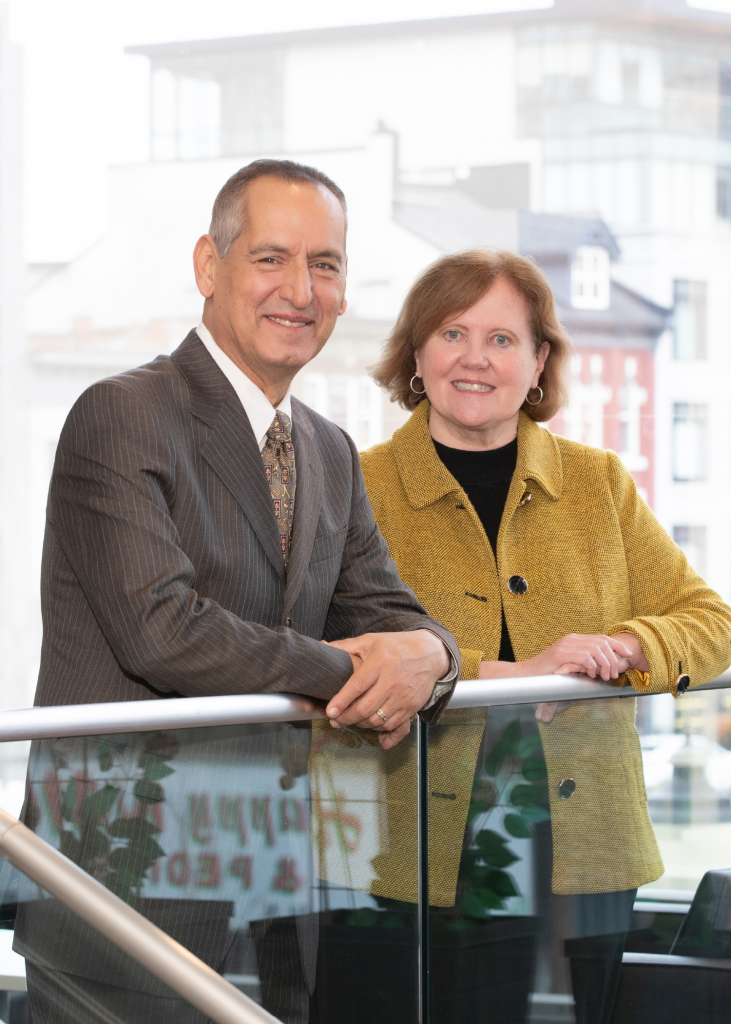Culture Focused on Sustainability
Students join together at first-ever Student Sustainability Ambassador Program (SSAP) Bonfire Social.
SSAP is a hub for sustainability groups and civic leaders at McMaster.
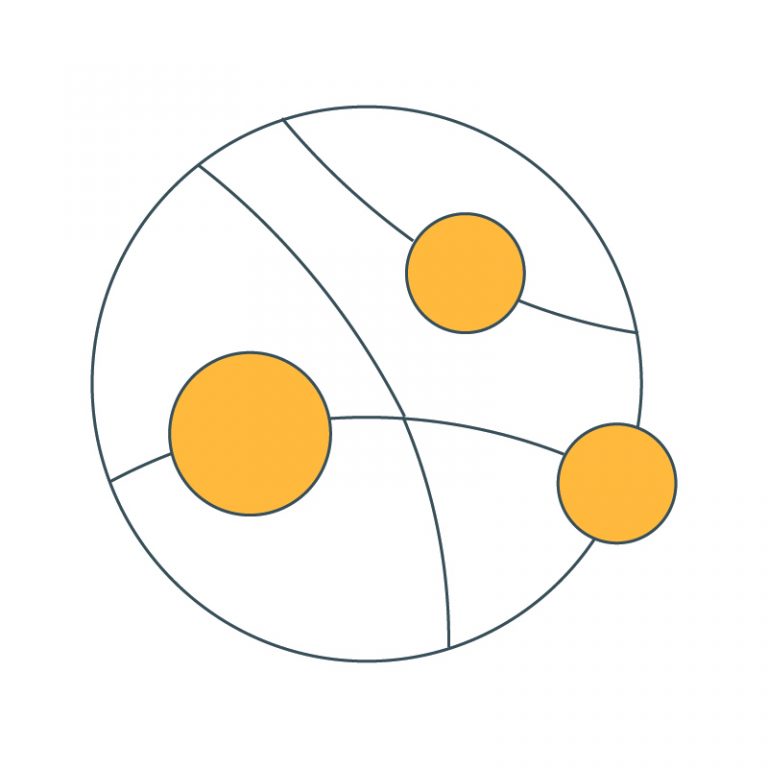
In this strategic driver, McMaster intends to grow in its commitment to collaborating across campus to promote a culture of sustainability through leadership, communications, engagement and learning as a community. The following stories of progress, projects and initiatives are just a few of the ways McMaster’s students, faculty and staff developed and deepened a culture of sustainability in the past year.
- Leadership and Vision
- Communications
- Strategic Partnership and Continued Engagement
- Learning and Development
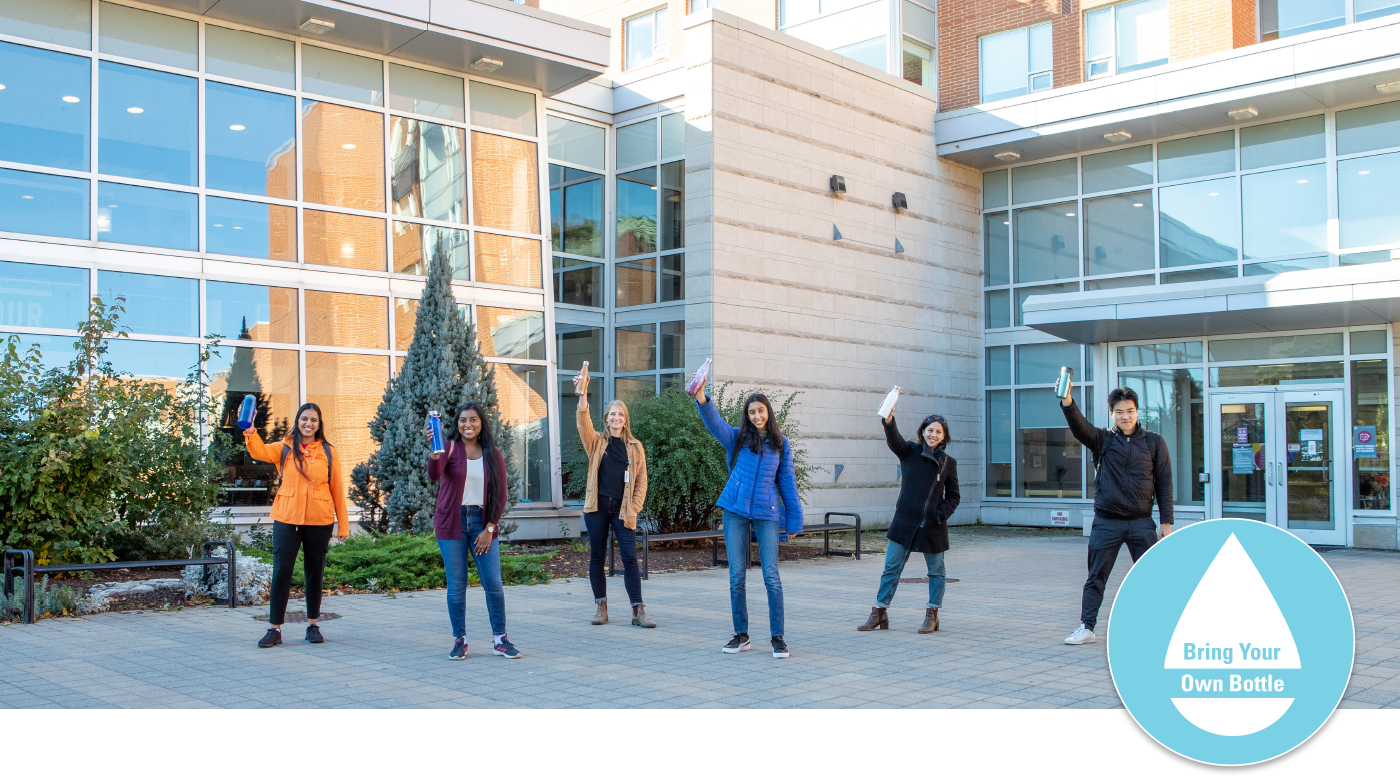
Leadership and Vision:
Revitalizing the Office of Sustainability
To advance sustainability efforts across the university, McMaster is revitalizing its Office of Sustainability to help engage leaders in planning projects and change initiatives that will achieve the university’s Sustainability Strategy. McMaster’s Office of Sustainability will expand to further engage the university community, encourage dialogue, support the creation of clear sustainability action plans across, and ensure McMaster meets goals and reports achievements.
Communications:
Strategic storytelling
McMaster is sharing stories and celebrating the university’s sustainability related achievements in research, teaching and learning, and campus operations. In the past year, McMaster’s inaugural Sustainability Strategy: A Living Laboratory for Sustainability launched with a collective commitment to transform campus into a living laboratory of sustainability. Collaborations between students, faculty and staff, such as the ACCESS Tech used technology drive, McMaster’s community fridge, water bottle refill campaign, sustainable procurement, and the native bee project on campus were just some of the stories shared.
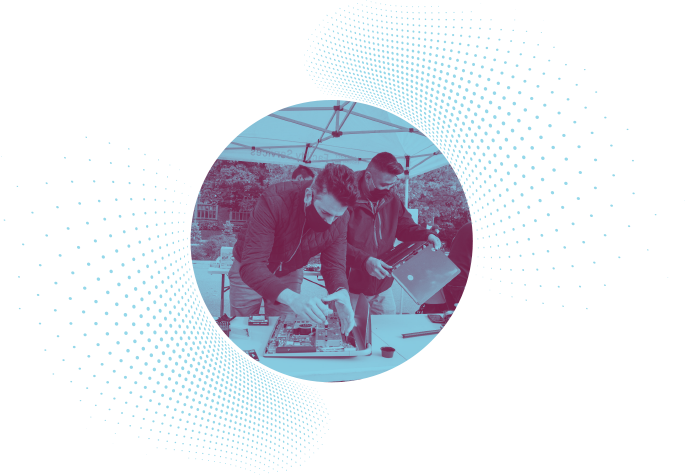
Information Box Group
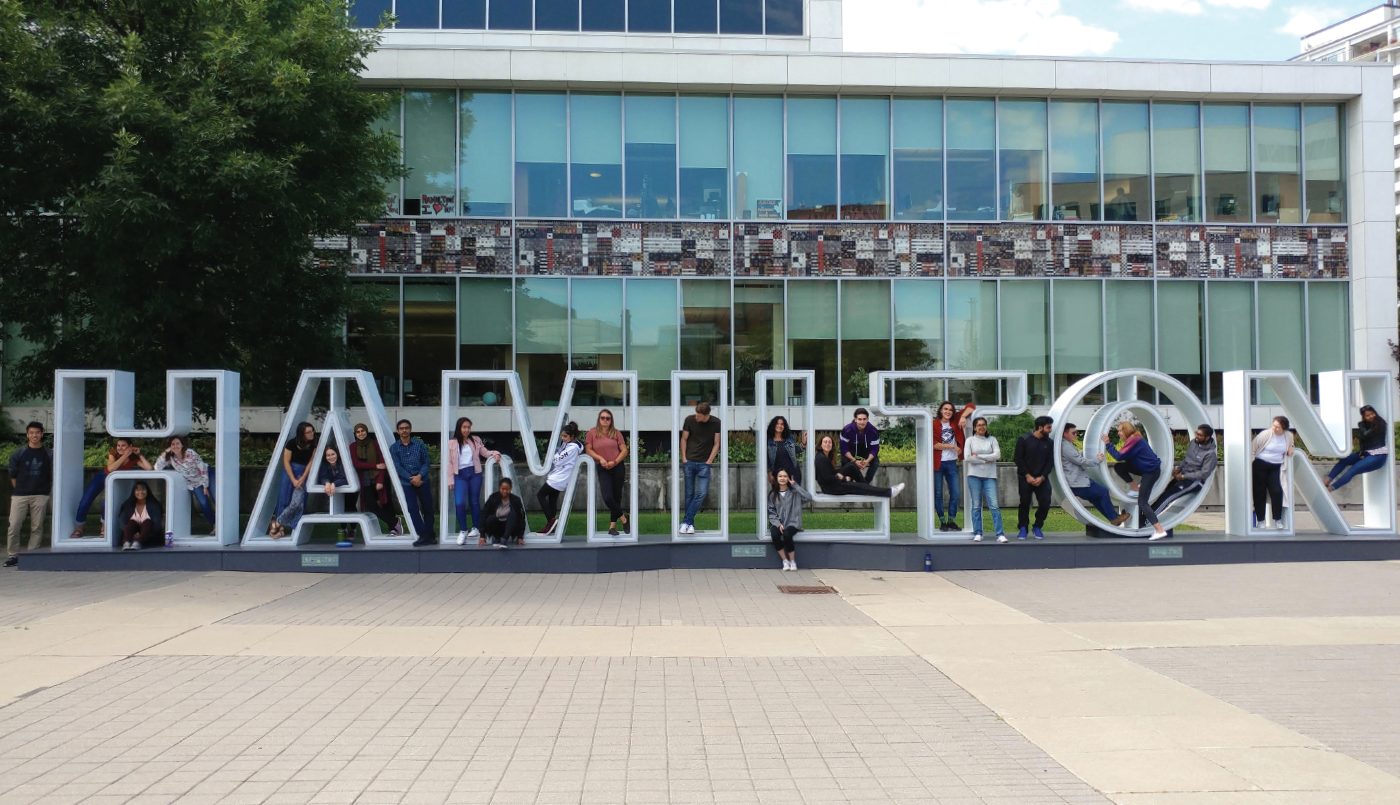
CItyLAB Semester in Residence (SIR) is a unique community engagement program for students to collaborate on strategic initiatives with staff from the City of Hamilton and community partners to achieve tangible, real-world results.
Strategic Partnership and Continued Engagement: Collaborating for sustainable development in Hamilton
Buildings emit 14 per cent of carbon emissions in Hamilton, according to a group of McMaster students who took part in the CityLAB semester in residence in 2021. As part of this immersive program that expands the university’s partnership with the City of Hamilton, McMaster students completed a project with the goal of raising public awareness about how Green Development Standards (GDS) can help decrease greenhouse gas emissions by incentivizing developers to build sustainable buildings, while also being equitable and inclusive. As part of this project, the students partnered with leaders from Friendly Streets for Black, Indigenous & Racialized Communities and Environment Hamilton, and pulled together a range of local stakeholders from municipal government, developers, and the non-profit sectors to advance equitable and inclusive GDS in Hamilton. Learn more about the community partnerships and sustainability-focused projects from the 2021 semester on the CityLABS website.
Learning and Development:
Sustainable continuing education
Our community has asked for more opportunities to learn about adopting sustainability-minded practices and McMaster University’s continuing education has delivered a comprehensive offering of courses for the professional learner that examines best practices for living and working sustainably. Launched in 2021, the Sustainability Program offers mature students from all backgrounds the option to earn a Certificate of Completion by taking courses related to sustainable principles, business practices, and responsible consumption.
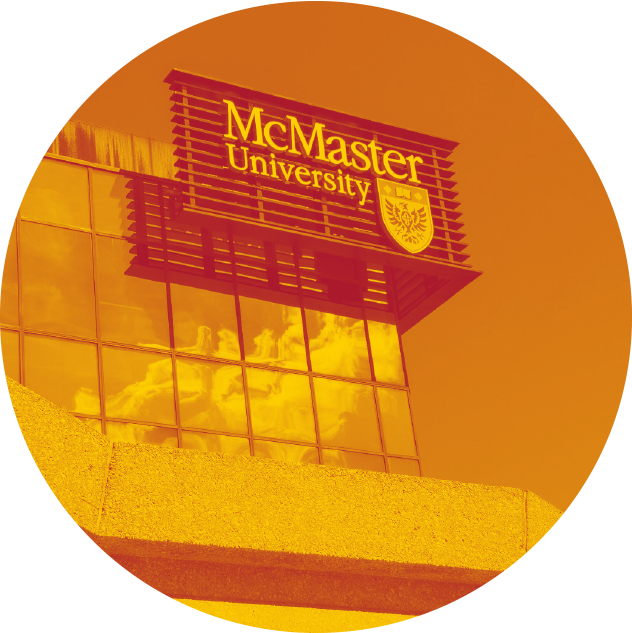

Spotlight:
Flexible sustainability education for busy professionals
“Sustainability is about meeting the needs of the present without compromising the ability of future generations to meet their own needs,” says Somayeh Rokhgireh, sustainability management specialist and instructor with McMaster University’s continuing education Sustainability Program. In this program, Rokhgireh has taught students from Canada, and as far as Peru, Sudan and Thailand to develop a holistic perspective on sustainable business principles and practices as well as personal consumption leading to sustainable living.
Lorraine Carter, director of McMaster continuing education, and her team saw a need to offer a holistic approach to learning about the impact sustainable living and commerce can have on environmental and societal systems. Sam (Saeed) Nejatian, a renewable energy and business management expert, and Rokhgireh were engaged to develop course content. They are both now active instructors. The program attracts entrepreneurs and professionals from across Canada and globally who would like to help their organizations go from status quo to more sustainable business principles and practices.
Beli Samuel Pérez, a project manager and MCE Sustainability Program student from Peru said he decided to enroll in the program to build a solid foundation in sustainability knowledge on a personal and professional level.
“I have prior working experience as a sustainability assistant. After acquiring further knowledge in the field from the MCE program, I feel more prepared to continue my sustainability journey both at a national and international level,” says Pérez. “In the program I learned about the UN SDGs, and I feel this connected me to something bigger than myself, something that gives me a global view of sustainability.”
Pérez appreciated the program’s flexible, self-paced, online delivery format that involved discussion forums and interaction with instructors and peers online. He has taken three of the four courses available and is eligible for the Certificate of Completion. However, he plans to take all available courses out of interest.
